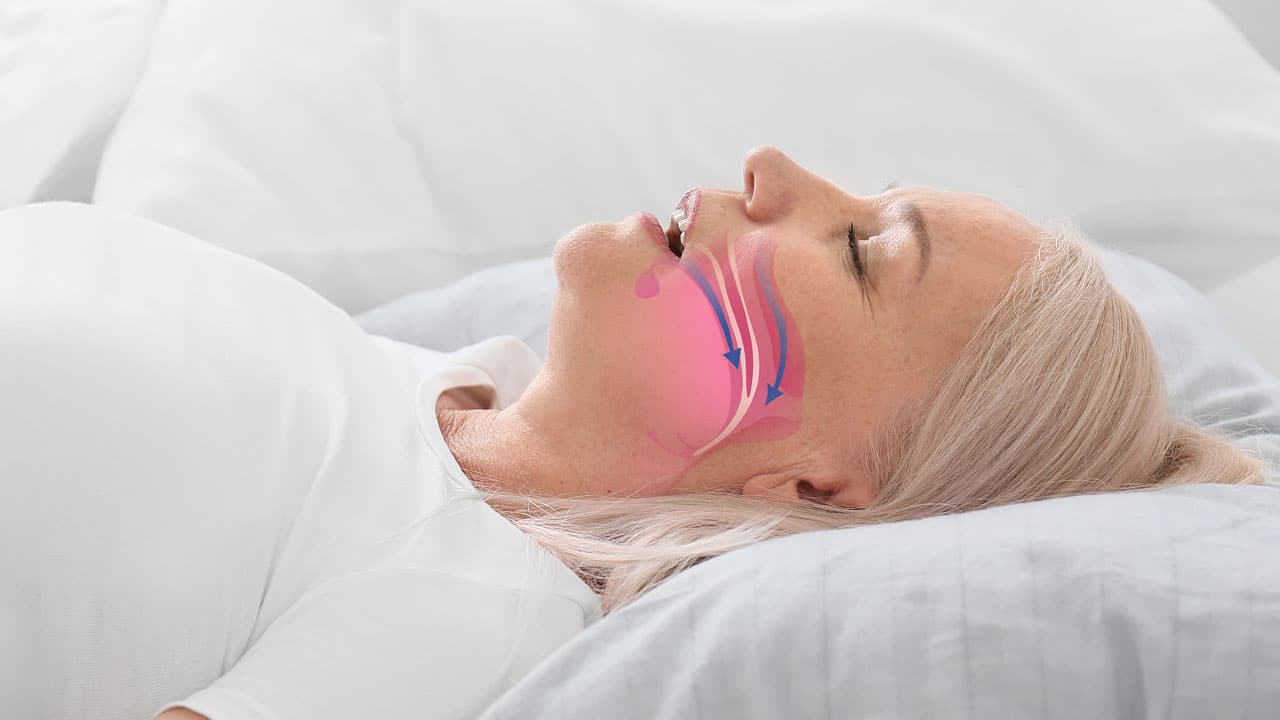
Sleep apnea occurs when you stop and start breathing multiple times a night. You may stop breathing for up to 10 seconds, which can deplete your body of oxygen. Obstructive Sleep Apnea (OSA), the most common form of sleep apnea, can lead to significant health problems like high blood pressure, stroke, and depression. However, there are several treatment options.
Wearing a personalized oral appliance to bed is one of the most popular sleep apnea treatments because it is quiet and effective. It is unobtrusive compared to a Continuous Positive Airway Pressure (CPAP) device and does not have the surgery’s risks. If you suspect you have sleep apnea, visit your dentist and see if treatment is right for you.
How is Sleep Apnea Diagnosed?
Dentists are trained to recognize signs and risk factors of sleep apnea. During routine biannual dentist checkups, dentists recognize anatomical risks for sleep apnea, like increased soft tissue in the upper airway or back of the mouth. If your dentist sees this, they will ask you some prequalifying questions about your sleeping habits and snoring tendencies.
If your dentist suspects you have sleep apnea, they can give you an at-home sleep apnea test like the Apnea Risk Evaluation System. If the test confirms you have sleep apnea, you, your dentist, and your physician can decide upon a treatment plan.
What are the Different Sleep Apnea Treatments?
The primary treatments for sleep apnea are CPAP therapy, oral appliance therapy, and surgery. CPAP therapy is effective when patients use it consistently and correctly. The problem is that many patients need help to adhere to proper use guidelines because CPAP is uncomfortable and loud.
- Oral appliance therapy. Oral appliance treatment is for those who have tried CPAP therapy and want to try another treatment option or patients who wish to skip CPAP. Oral appliance therapy uses a mouthguard-like insert to adjust the lower jaw slightly forward while you sleep. This keeps your airway open and stops snoring and airway collapse from occurring. Oral appliances are up to 80% effective for qualified patients, with patient satisfaction rated much higher than CPAP at over 75%. Combined with their effectiveness, patients like oral appliance therapy because it is less intrusive than CPAP, easier to travel with, and less expensive.
- Upper airway surgery. Your dentist or physician may recommend surgery for sleep apnea cases with ineffective CPAP and oral appliances. Surgery removes tissue from the back of your mouth or upper airway to reduce airway collapsibility. Other procedures adjust your lower jaw or tighten the tendons of the tongue to stop it from blocking your airway. Since surgery is significantly more intrusive than both CPAP and oral appliances, many patients and dentists prefer to use it only as a final treatment option.
Start Oral Appliance Therapy Today
If you are diagnosed with sleep apnea and want an effective non-invasive treatment, ask your dentist about oral appliance therapy. They take 3D scans of your mouth and then have a custom appliance made for you.
Reclaim a good night’s sleep with oral appliance therapy. At Smile On Dental Salon & Sleep Apnea Center, we provide three different oral appliance therapy options to ensure you get the best sleep apnea treatment.
Contact us today to learn more about sleep apnea and how we provide relief.
